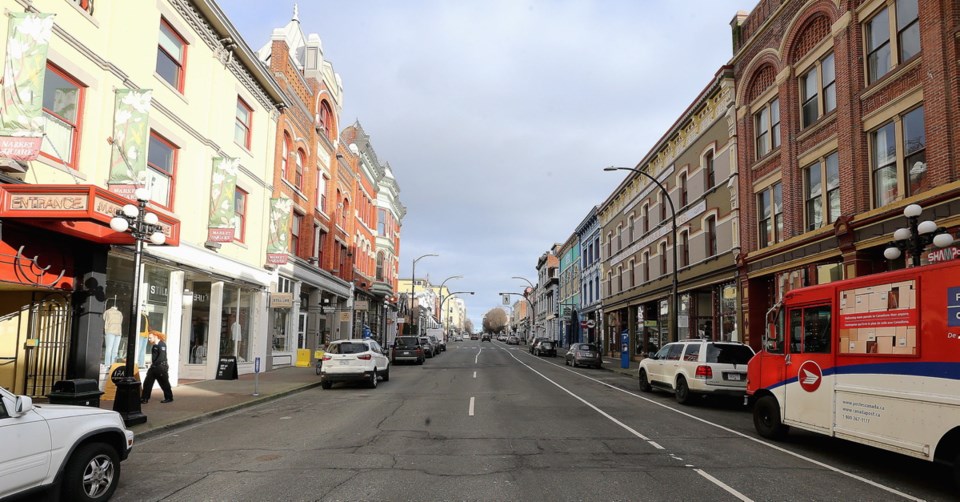By the time he got home from the Second World War, my dad, still just 22 years old, had spent five years fighting Nazis.
I, on the other hand, could potentially face a few days or weeks of watching Netflix in my own house. Not all sacrifice is equal.
That inequality holds true among Vancouver Islanders during efforts to contain COVID-19, too. Some are being asked to give up more than others.
While a certain number have the luxury of continuing to get paid while working at home, others find their jobs shutting down altogether, some for a short time and others indefinitely.
Take Christy Steinke. She’s a hair stylist in the West Shore with a home-based business called Hair By Christy. Her husband is a plumber.
There’s no such thing as vacation pay for people like them. When they took their three kids on a 10-day trip to Mexico this month, they knew their income stream would be dammed for that period. That was OK. They had saved up and planned for it.
All was fine when they left Canada, but then the coronavirus worry ramped up and an unease set in among the travellers. On the day before the family came home last week, authorities in B.C. advised anyone arriving from abroad to self-isolate for 14 days.
Christy’s husband can do some work from home, but for her, that meant another two weeks without work, without income.
She’s not complaining. Quarantining is the right thing to do.
“At the end of the day, what matters is that we’re all healthy, we’re all safe.”
But yes, there’s a financial cost.
“Like most people, we don’t have an unlimited bank account,” she says. “You save for a year just to go on vacation for 10 days.”
She does not pay Employment Insurance premiums, so does not qualify for benefits. (Note that Ottawa just eased restrictions for those who contribute to the plan; the usual one-week waiting period has been waived, meaning those who qualify — people whose employers don’t give them sick pay — will receive benefits for the entire two-week quarantine period.)
She knows the pain is short-term and the family will regain its stride. Her clients will come back. “We’ll be fine.”
But she also knows others won’t be as fortunate. There are an awful lot of self-employed people, and people in small, locally owned businesses, who are working without a net. It’s not just those under temporary quarantine, but anyone whose livelihood depends on a business that has dried up. Look at the long list of places shutting their doors for the duration. Some people are looking at far more than a couple of weeks without a paycheque.
So, yes, just as the consequences of contracting COVID-19 are not equal, neither are the economic consequences of shutting down our lives to deal with it.
If you are in a position to choose where to spend your money, remember those who are most vulnerable, the small, independent local outfits, and the people who work at them. Support your neighbours and friends.
On Sunday, I wrote about the satire at nanaimobeacon.com. It’s a fun site, similar to The Onion or The Beaverton.
Now the website has launched an effort that is decidedly not satire. Beacon Buddies links people in self-isolation or quarantine to neighbours willing to perform out-of-home errands on their behalf. “This is a free service,” the site states. “No money changes hands. It’s just Islanders helping Islanders.”
As of Monday, nearly 500 would-be helpers from Campbell River to Duncan had signed up at nanaimobeacon.com/buddies. “Willing to cook meals for shut-ins,” offered one. “I’m a handyman by trade, so I may be able to help with small jobs around the house,” wrote another.
One of the (still-unidentified) people behind the Beacon messaged me to say the idea is getting traction elsewhere. “We’ve been contacted by cities around the world asking for a guide on how to set up a system like ours, so one of us has started working on that. (Honestly, it’s mostly a patchwork of simple web tools and good old-fashioned manual work.)”
There are many workers for whom we can be grateful today (hello, grocery store cashiers!) but right at the top of the list are the frontline health-care staff stepping up right now. Thank you.



